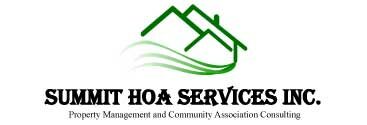The fundamental responsibility of a common interest community association (homeowner association or “HOA”) is to protect, maintain and enhance the value of the association’s assets. Effective and professional administration requires strong management skills in planning, organizing and monitoring, regardless of whether the homeowner association is administered by a third party or self-managed.
Your organization is bestowed a huge obligation and legal authority, with certain rights and responsibilities for effective communal living. Federal and state statutes empower the association to perform prescribed functions and to govern by representation. They confer upon the board the authority to act on the corporation’s behalf. Your association is, therefore, a representative form of government founded on the principle of elected individuals representing the people, much like the rest of our country’s democratic institutions.
In conducting the business of the HOA, the board of directors has a fiduciary responsibility to abide by applicable laws and fulfill their fiduciary duties to the community, as well as exercise discretion and sound business judgment that always places the needs of the community first and foremost. Business must be conducted transparently and with full accountability.
Corporate law requires the leaders of the HOA to act with the following duties in mind:
- Duty of Care – the business of the association must be afforded the same degree of care and diligence that prudent persons would exercise in their own affairs in similar circumstances. Each director is expected to be reasonably informed, must participate in decisions, and is required to do so in good faith with the care of an ordinary person under similar circumstances. The board must operate as a group, decisions cannot be made unilaterally.
- Duty of Loyalty – the association’s leaders must exercise their powers in the interest of the association, for the benefit of the association, without regard to any personal interest. Any potential conflict of interest must be fully disclosed the moment the potential conflict of interest is perceived.
- Duty to Act within the Scope of Authority – the directors owe a duty to the membership to perform their tasks in accordance with the authority granted to them by state statutes and their governing documents.
In performing your duties as a board member, you need to take the time to:
- understand the association and its operations
- become fully informed on issues affecting your HOA, as well as your specific responsibilities
- educate yourself on HOA administration and governance
- be an alert and active participant, critical in your evaluation of information presented
- recognize and seek professional advice when warranted
- refuse any special treatment and immediately disclose potential conflicts of interest
Your duty unfolds by ensuring your HOA is well prepared with all of its essential documents; current in their relevance, orderly in their presentation. A HOA Administration and Governance Assessment will seek to identify any irregularities in your inventory of governing documents, financial reports, meeting records and annual disclosures. Please note that your documents will not be scrutinized nor interpreted for legal inconsistencies, only an attorney can offer this, nor will your financials be reviewed for inaccuracies, your accountant is the appropriate source for this; however, practical guidance will be offered to ensure your association is maintaining reasonable compliance with industry standards.
The documents under consideration for the report will usually include:
- Governing Documents – Articles of Incorporation, state of Colorado registrations, Plats and/or Maps, Declaration (CC&R’s) and any amendments or supplements as recorded with the county government, allocated interests and list of assessments, Bylaws, Rules and Regulations (particularly looking for possible conflicts with other governing documents or state statutes), Responsible Governance Policies, maintenance responsibilities charts, risk management documents (including insurance).
- Financial – Operating budget adequacy (fund accounting procedures, recording of assessments, working capital policies, funding of insurance deductibles, recording of reserve fund contributions and expenses, methods of approval and adoption of budget), Reserve Study budget (percent funding, supports operating budget), periodic financial statements and their relationship to the budgets, aged accounts receivable reports, aged accounts payable reports, professional HOA reviews or audits and implementation of conclusions.
- Meetings (last 12 months) – notices of meetings, recording of minutes, attached meeting reports, methods of dissemination of minutes. Documents are scanned for reasonable conformance to Roberts Rules of parliamentary procedure.
- Annual disclosures – Colorado State law now requires certain disclosures to the membership to be made annually. We will determine if these disclosures are complete and have been met in a timely manner.
A follow up HOA Administration and Governance Assessment report shall be delivered, highlighting any observed issues of concern and noting any recommended actions.
The HOA Administration and Governance Assessment process shall be conducted with the utmost discretion.
Your HOA confidentiality is assured.
No Fields Found.